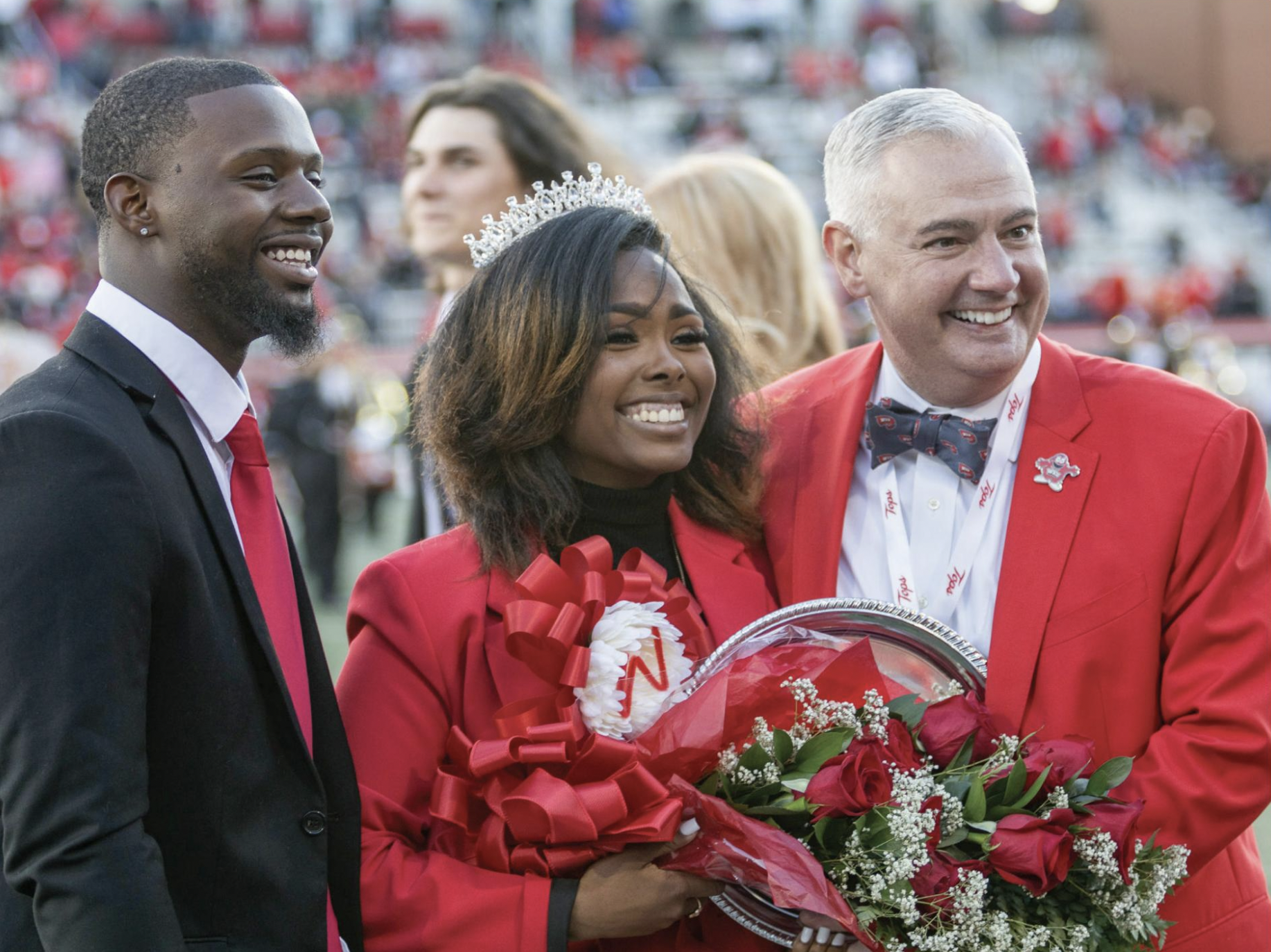The tradition of selecting a student to take on the role of homecoming queen has been and continues to be an aspect of WKU’s homecoming culture for over 70 years.
Past homecoming queens say the role is more than just a title, it’s an embodiment of what the spirit of WKU truly is.
In celebration of decades of campus royalty, the Herald connected with several WKU Homecoming queens who reflected on their unique experiences on homecoming court.
Millie LeJeune, 2023
Millie LeJeune said making homecoming court was one of her goals when she arrived on campus.
“When I got to WKU, I made a bucket list of things I wanted to accomplish during my time on the hill, and being on Homecoming court was literally the last thing that I wanted to accomplish my senior year at WKU,” LeJeune said.
LeJeune’s campaign was sponsored by the Black Women of Western and Alpha Kappa Psi Professional Business Fraternity She was the president of the Black Women of Western and a navigator in the Intercultural Student Engagement Center (ISEC) while at WKU.
LeJeune graduated from WKU with a bachelor’s degree in exercise science and is currently a physical therapist technician working towards a doctorate.
LeJeune said running for homecoming queen didn’t feel like a competition to her, but instead, a “beautiful experience” to see girls represent what being “a true Hilltopper” meant.
“Just be yourself,” LeJeune said. “Be fine, be genuine. Don’t look at it as a competition, but just as a week to reflect on your time on the Hill. To even be nominated, to be sponsored by an organization says a lot about your character and what you carry within yourself and on the Hill as well.”
LeJeune said Homecoming week tests an individual’s time management skills between balancing the week’s activities with regular class work.
Despite this, LeJeune said she would relive the experience if she could.
“Homecoming week would be something that I would do over again in any lifetime that I got the opportunity to because I just had so much fun,” LeJeune said.
LeJeune emphasized all Homecoming Queen candidates should be present in the moment because it will always be something they can look back on as part of their legacy at WKU.
“Try to soak in each and every moment because it’ll be something that you reminisce on down the line,” LeJeune said. “After it’s all said and done, regardless of if you win or not, there will always be something that you can tell your future kids.”
Sarah Burke, 2020
Due to the coronavirus pandemic, Sarah Burke’s homecoming queen experience differed from candidates’ experiences in other years.
“I think we were all just so thankful that we still got to do it,” Harne said. “I think back and that is all kind of such a blur, but it was definitely a little bit disappointing to not have the stadium full of people. You don’t have the same energy that normally would have been there at a football game.”
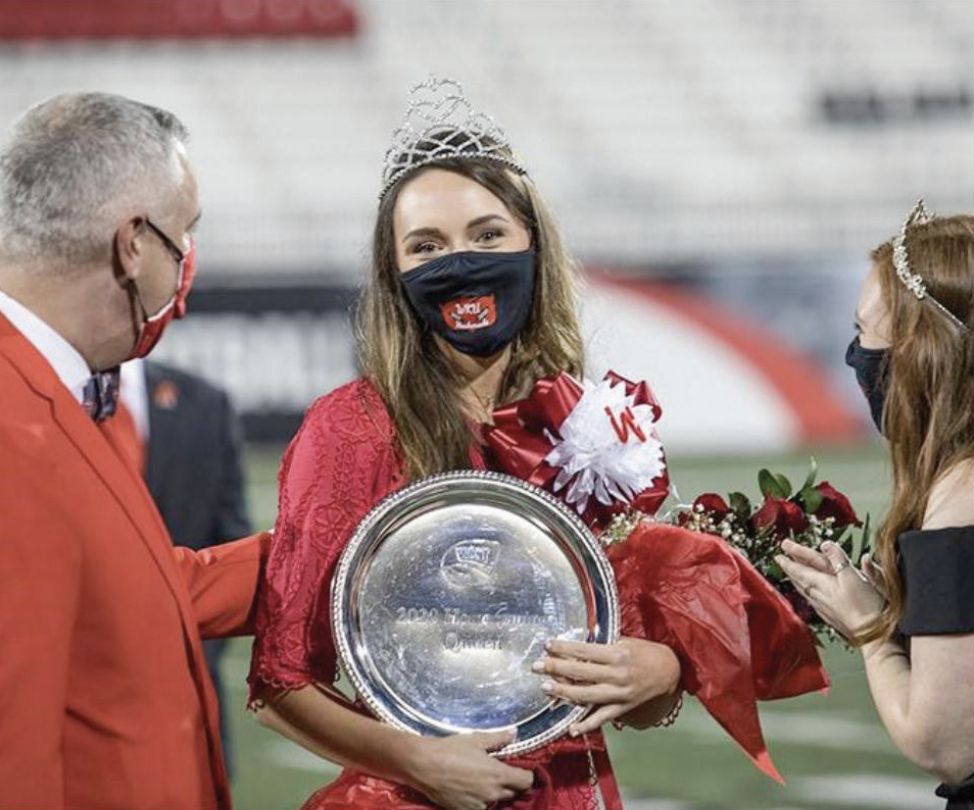
Burke graduated from WKU with a bachelor’s degree in communication sciences and disorders and is currently a clinical research reporter.
Her campaign was sponsored by Alpha Delta Pi, Alpha Gamma Rho and Delta Tau Delta.
Burke said each candidate was given only four guest tickets for the ceremony, so she brought her parents and siblings. Burke’s brother walked her across the field.
Burke said her crowning experience was very surreal since she did not expect to win. She said she was close with many of the competing girls and believed several could have made a good homecoming queen. Burke said she was sort of “living on the high” when media outlets posted about homecoming, waking up to see herself in her hometown newspaper.
“I was on the front page of the article for being the homecoming queen,” Burke said. “So it’s just so special to think all these people were excited for me.”
Burke said homecoming queen was more than a title to her, it was being validated by people on WKU’s campus who thought highly enough of her to cast their vote.
Burke said being crowned homecoming queen was “the best way to leave WKU” and is one of the top three proudest moments of her life. She said she feels she won her campaign authentically.
“I personally think the way that you’ve lived your last three years at WKU will determine who the winner is just because there are relationships already built, so you’ve already put in the time,” Burke said.
Katie Staples Burch, 2001
Katie Staples Burch said she doesn’t have the “stereotypical qualities” of a traditional homecoming queen from the movies. However, she believes WKU does a good job in choosing its winner based on merits and not solely popularity.
“I do think that Western did it right because they typically, from my memory, choose people that have invested in the campus and the university, that really have put a lot into their time there,” Burch said.
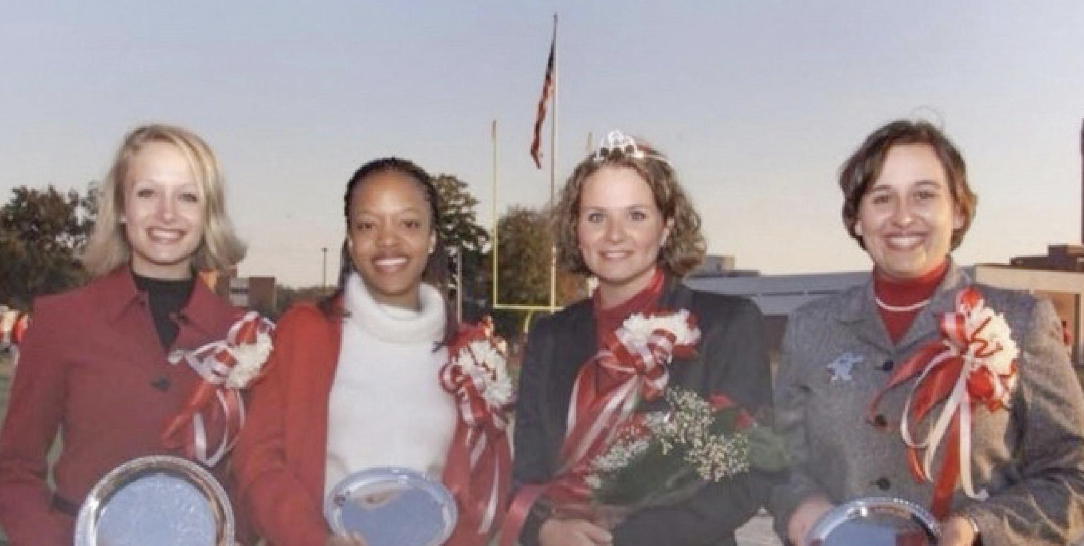
Burch graduated from WKU with a bachelor’s degree in public relations and agriculture, as well as a master’s degree in communication. She now works as an IHD Field Reimbursement Manager.
Her campaign was sponsored by her sorority, Kappa Delta. She said the competing candidates had diverse backgrounds and were all involved leaders in some way at WKU. Burch said her own involvement as a Spirit Master and a cheerleader at WKU contributed to her victory.
Burch said being crowned Homecoming Queen was “bittersweet” because she realized she would graduate in a few months.
“I was very aware that I was in a good place, and I loved it and it was like my home, but I had to leave the nest and I wasn’t quite ready,” Burch said.
She said the role of homecoming queen is just about being an overall good, kind person who represents WKU.
“I think the most important thing is just choosing someone who really represents what the university is all about,” Burch said.
Burch said she would advise Homecoming candidates the same way she would advise her children, which is to make people feel included and comfortable.
“The goal that I always have for my kids is try to make a difference in somebody’s life every day, even if it’s a tiny, small little thing,” Burch said. “If you can make somebody feel better everyday, that adds up, and I think that’s what it’s all about being homecoming queen. It sounds so silly and superficial, but it’s really just about being a good human, and being a nice person and representing Western.”
Jennifer Mize Smith, 1992
Jennifer Mize Smith said the year she ran for homecoming queen, WKU nearly shut down its football program in 1992 due to budget cuts.
According to a Herald article from 2020, “The university needed to implement a state-mandated $6.1 million in budget cuts for the 1992-93 fiscal year, and Hilltopper football ended up on the chopping block in April 1992.”
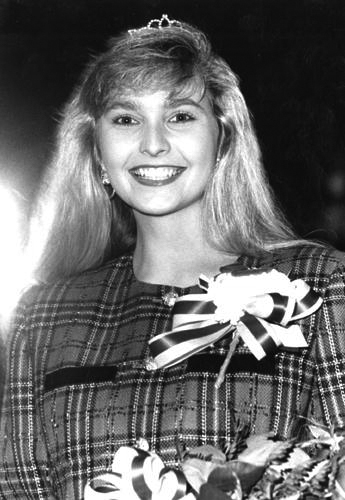
This means that Smith could have been WKU’s last traditional Homecoming Football Queen if the program had been cut. A combined last-ditch effort by a vocal collection of program supporters helped WKU football dodge elimination, according to the Herald.
“Thankfully, some administrators and some community leaders and donors stepped up and saved the program,” Smith said.
Smith said while the university could have made it so there was a homecoming queen for another sport like basketball’s coming home king, she said it wouldn’t be the same without the atmosphere of a football game.
“I really would have been really sad to see the program go away, even if it would have meant I was the last,” Smith said. “I’d rather not be the last so everybody can still come along and still have that experience and now, with the new and improved stadium and all the things, it’s hard to imagine the campus without a football program.”
Smith graduated from WKU with a bachelor’s degree in organizational communication and now works at WKU as a professor in communication.
Her campaign was sponsored by her sorority, Alpha Omicron Pi.
Smith said homecoming week is full of fun activities for the candidates and the WKU community.
“It’s really a fun week,” Smith said. “That moment when they call your name is just really special because you’ve been doing all kinds of fun things, and the atmosphere is just really cool and electric.”
Smith said her advice for candidates is to live in the moment and try to be a well-rounded individual present in both the campus and community.
“Enjoy the moment, enjoy the interactions, enjoy the excitement and just be appreciative that people are recognizing the good things you’re doing, especially from your peers who are putting you up to be their representative,” Smith said.
Alice Gatewood Waddell, 1972
Alice Gatewood Waddell said her win was “bittersweet” because of the pushback she faced when crowned as WKU’s first Black homecoming queen.
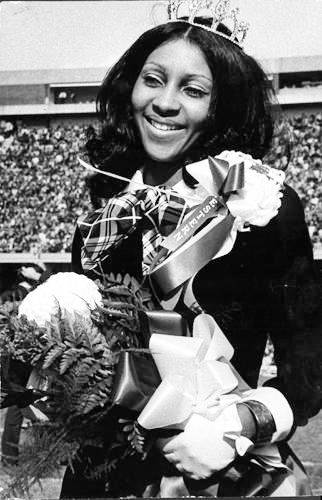
Waddell said the university recounted the votes when the winner was first determined due to “potential voting fraud.”
“Someone claimed that the ballot box had been stuffed, which gave the Black students on campus a feel of betrayal in that they just didn’t want to believe the outcome, which was that I got the most votes,” Waddell said. “So we ended up voting again, and I won again.”
Waddell graduated from WKU with a Bachelor of Fine Arts degree and is currently the executive director of the Bowling Green Human Rights Commission and a full-time practicing visual artist.
Her campaign was sponsored by the Black Student Union. Waddell said when she was crowned, the crowd fell silent and seemed displeased, except for the section of the stadium where the Black students sat.
“It was just an indication that the majority of white population was displeased about it, but that really didn’t bother me,” Waddell said. “We had accomplished what we set out to do and that was to have a homecoming queen, a Black homecoming queen.”
Waddell said her win was a turning point for WKU because there were more Black candidates and homecoming queens in the years following her coronation. She said she felt it was not about her as much as it was about Black students being represented on campus.
“When it was announced, it was an occasion that I kind of felt like it wasn’t really about me,” Waddell said. “It was about the representation and visibility of Black students on WKU’s campus at the time because there wasn’t a lot of representation nor visibility other than pretty much sports.”
Waddell said being homecoming queen is only a small part of an individual’s college experience.
“Homecoming queen is a sidebar experience,” Waddell said.
“Being successful in what you came to the university to do would be an important goal along with carrying your image as a homecoming queen in a way that you may have a positive influence on some other young woman.”
News Reporter Abigail Vickers can be contacted at [email protected]


